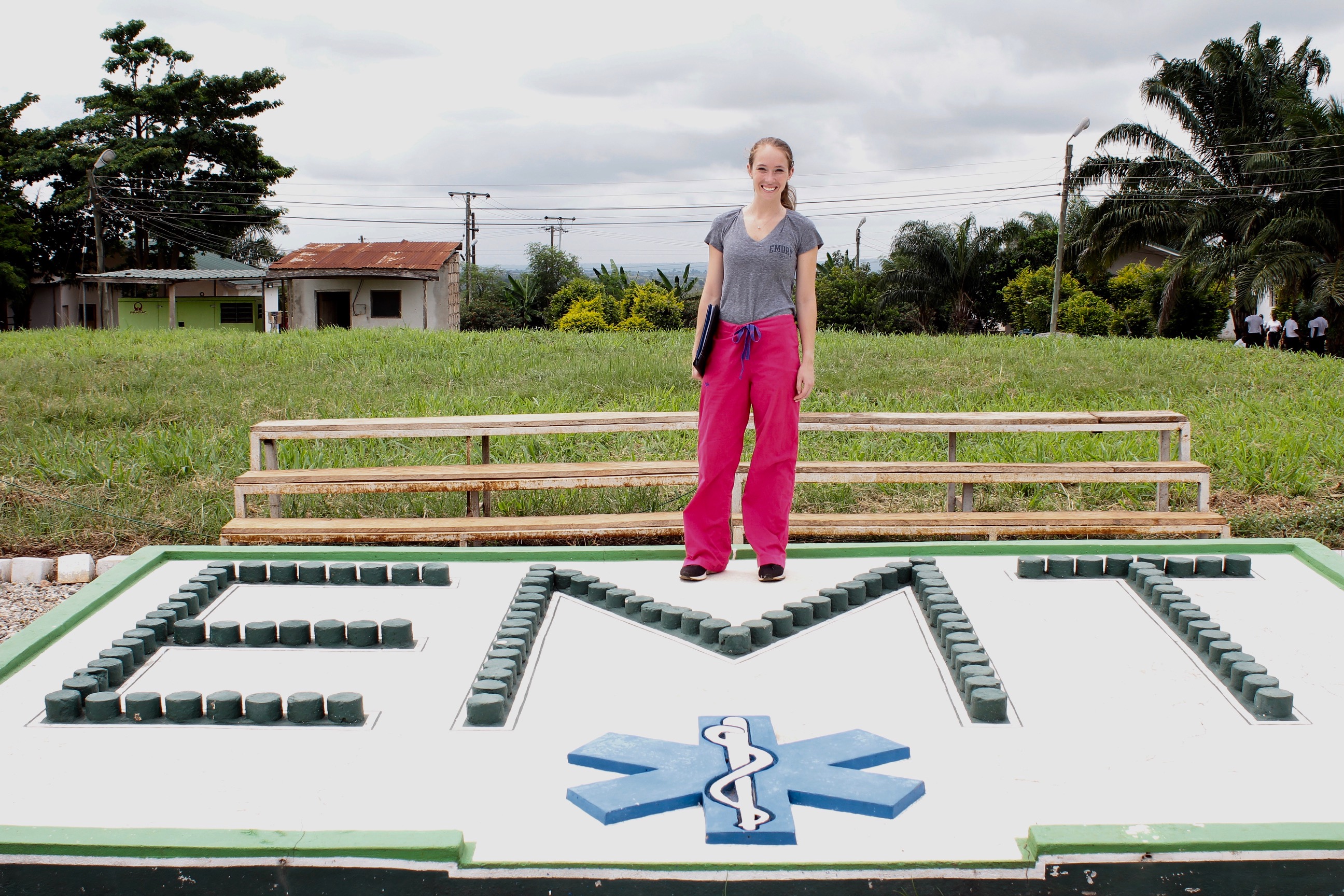 Katelyn Flaherty is a 4th year MD-PhD student in the Department of Environmental and Global Health. Her research focuses on pre-hospital care in low-and-middle income countries, specifically Ghana.
Katelyn Flaherty is a 4th year MD-PhD student in the Department of Environmental and Global Health. Her research focuses on pre-hospital care in low-and-middle income countries, specifically Ghana.
Globally, leading causes of death among children one month to 5 years old include respiratory infections, diarrheal disease, and malaria, all of which are highly treatable early in the disease-course yet frequently progress to emergencies in low-and-middle-income countries. Extending care to broad populations is a generalizable challenge that must be addressed to realize the WHO Sustainable Development Goals. The expansion of low-cost community healthcare services has improved access to ‘on hours’ care but approaches to improve access to ‘off hours’ care remain exploratory. In Ghana, the deployment of the National Ambulance Service (NAS), a nationwide emergency medical service (EMS) agency, has led to significant gains in access to timely emergency care. However, the endeavor has exposed unanticipated costs that limit sustainability and scalability. Currently a major challenge is how to manage pre-emergency calls that consume resources intended for emergencies. A dedicated pre-emergency service is needed to expand healthcare access and alleviate the EMS resource burden.
To address pre-emergency conditions, Katie plans to implement a pediatric telehealth and medication delivery service in Ghana. She will do so using the MotoMeds model in which families with children that have developed symptoms of an acute illness, or an acute exacerbation of a chronic illness, call a health line where they are triaged and assessed by a healthcare professional, and receive a household medication delivery via motorcycle if necessary. The feasibility of the proposed model is supported by that fact that MotoMeds currently operates safely and efficiently in Haiti. However, the lack of an organized primary response EMS system in Haiti prevents evaluation of MotoMeds within an existing emergency care system. Furthermore, the low burden of malaria in Haiti limits the generalizability of MotoMeds clinical decision support. Ghana was selected to evaluate MotoMeds for generalizability and portability. Katie hypothesizes that the incorporation of a dedicated pre-emergency service into NAS will expand healthcare access and reduce the progression of minor acute illnesses and exacerbations of chronic diseases into true emergencies.
During her Fulbright-Hays DDRA Fellowship, Katie seeks to study pre-emergency needs in Ghana, with the goal of building a system that addresses such pre-emergencies while leveraging existing resources. She plans to 1) Conduct a needs assessment of primary care, pre-emergency care, and emergency services at three distinct locations in Ghana 2) Review NAS call records to match available healthcare infrastructure with EMS utilization and quantify NAS resource distribution 3) Pilot a pediatric pre-hospital care service in Accra, Ghana. This research will serve as proof-of-concept of MotoMeds Ghana as a means to increase access to pre-emergency care by leveraging an existing EMS system’s resource. The results from this study will lay foundation for a widespread implementation of MotoMeds Ghana across multiple sites.